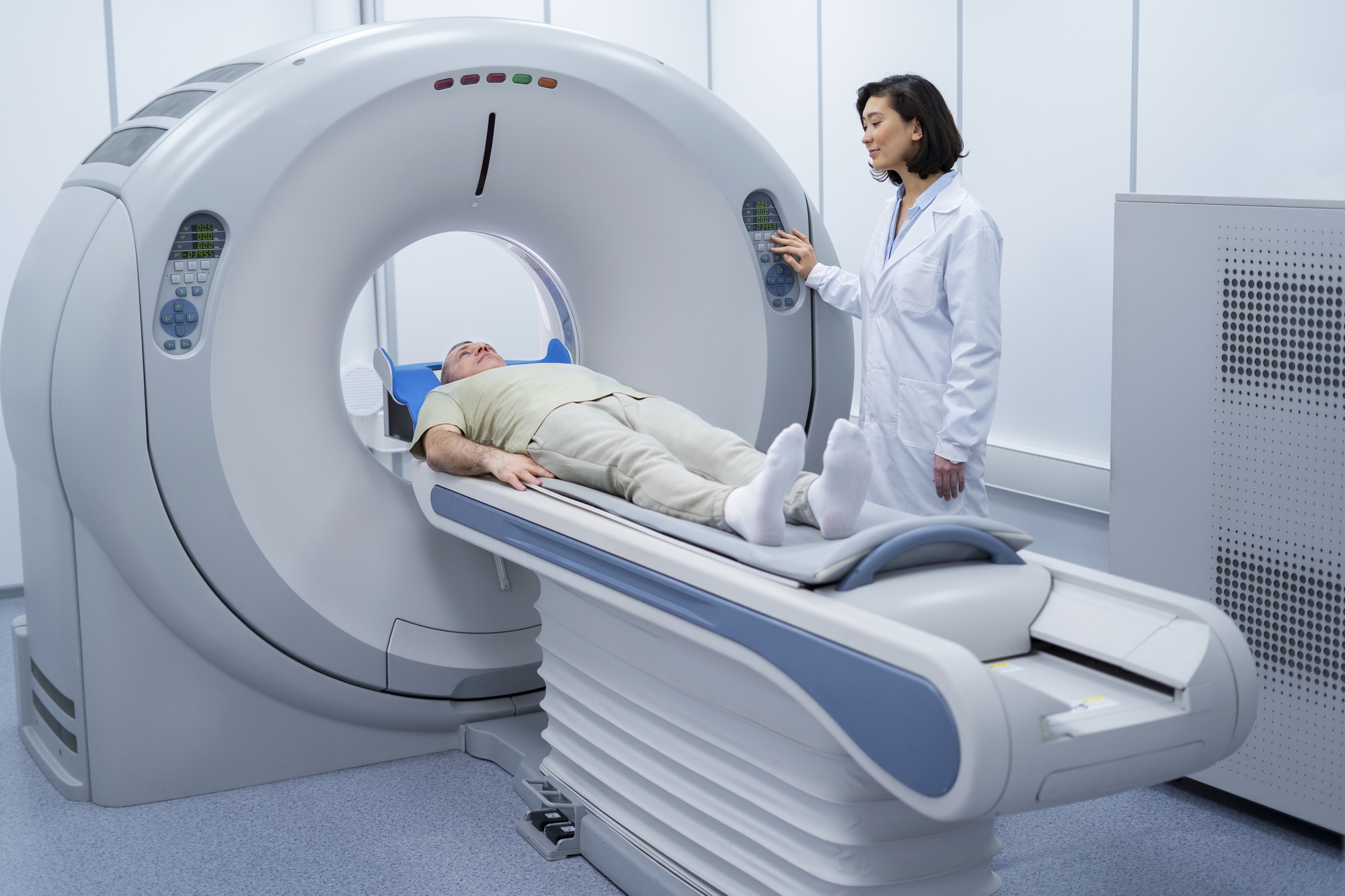MRI Scan
Precision Imaging with
MRI Scan
Magnetic
Resonance Imaging (MRI) is a non-invasive medical imaging technique that is
often used to visualize and examine internal structures of the body with
exceptional clarity and detail. The imaging technique leverages a robust
magnetic field, radio waves, and advanced computer technology to generate and
display very high-quality cross-sectional images of the internal organs that
can help in precise and timely diagnosis. Used for various diagnostic and
screening purposes, MRI provides valuable insights into several medical
conditions without generating the need to subject the patients to ionizing
radiations of other scans.
Overview of the Key Aspects of MRI:
Types of MRI Machines:
MRI machines are
often available in various types such as closed MRI machines and Open MRI
machines. Open MRI machines are particularly designed to accommodate patients
who have trouble lying flat or have claustrophobia. Closed MRI machines have a
tunnel-like or cylindrical shape that elevates the magnetic field to generate more
precise and detailed images.
Procedure:
●
During the MRI procedure, the
patient is often made to lie flat on the table equipped with motors that
smoothly slides inside the MRI machines.
●
Depending on the body part to
be scanned, the patient is moved on the scanner either through the side of the
head or feet.
●
It is crucial to remain still
during the scan to avoid blurry or unclear images.
●
The machines generate a robust
magnetic field around a patient’s body with radio waves directed at the body.
Since it is not felt, the procedure is relatively painless.
●
As the scan starts, the
magnetic inside the machine make a whirring and tapping sounds that are
repetitive.
●
Although these sounds are not
harmful in any way, earplugs or headphones may be offered to patients with
sensitive hearing.
●
The scan can last from 15
minutes to more than an hour depending on the requirement for the scan.
●
In rare cases, a contrast
material can be injected into a vein through an intravenous line which can
enhance imaging and improve precision of diagnosis.
Benefits of MRI
●
Non-invasive and painless
imaging process
●
Offers exception soft-tissue
contrast for accurate differentiation and diagnosis
●
Generally considered safe
●
Can effectively diagnose
several medical conditions related to joint injuries, neurological disorders,
tumors, cardiovascular diseases, and abdominal conditions, among others
●
Reduces the need for high
ionizing radiation imaging such as CT scan and X-rays
It is important
for patients to inform their medical provider and radiologists about any metal
implants such as plates, screws, or pacemakers and other medical conditions before
undergoing MRI scanning to avoid any complications from arising. Patients need
to wear comfortable clothing’s, preferably without metal zips or buttons and
must avoid watches, hairpins, and piercings. In addition, patients need to
inform their healthcare provider in case of any kidney issues, allergies, or
pregnancy-related details in case contrast agents may need to be administered.
MRI Scan
- Brain
- Knee
- Lumber Spine / LS Spine
- Shoulder

